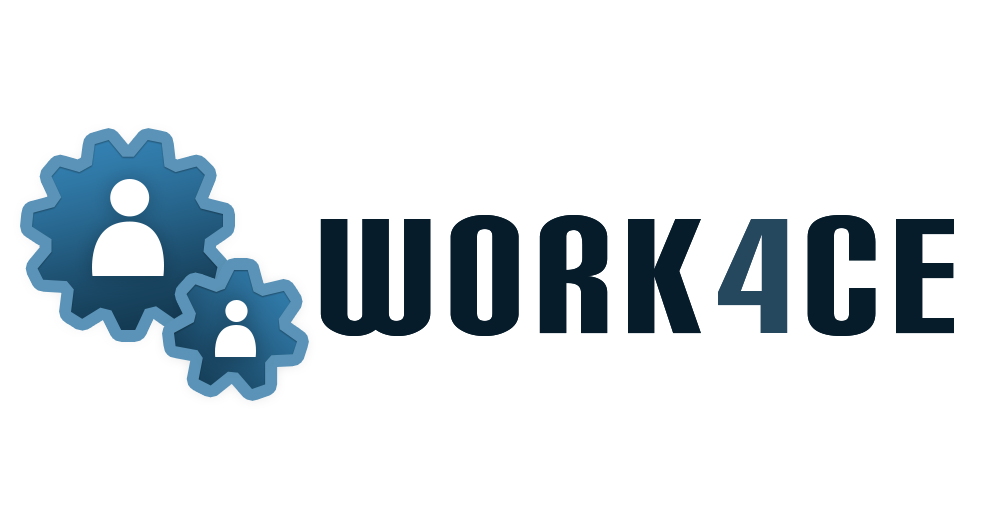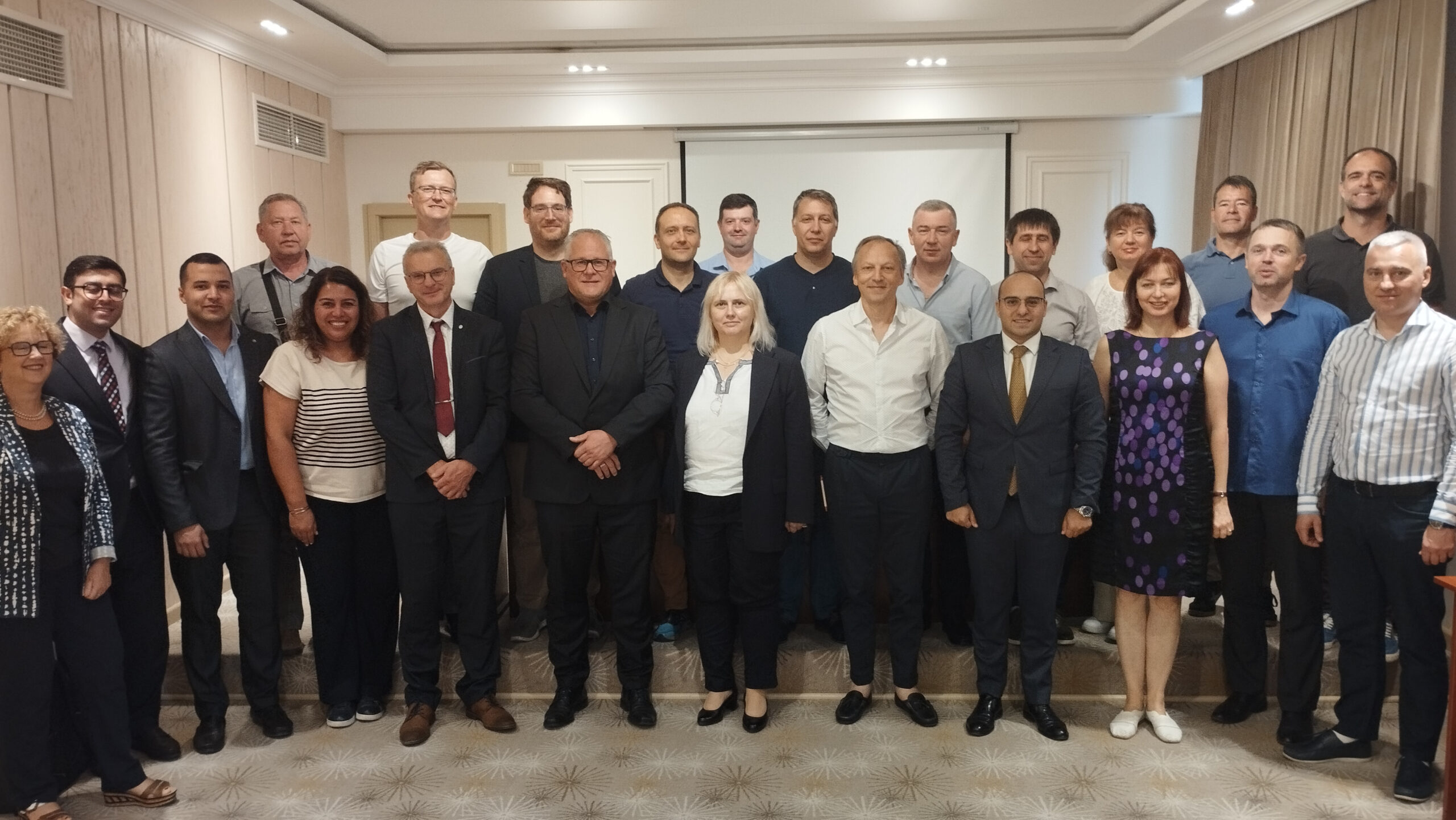The final meeting of the Erasmus+ KA2: Capacity Building in Higher Education “Cross-domain competences for healthy and safe work in the 21st century” (WORK4CE) project, funded by the EU Erasmus+ program, took place on September 19-20, 2024, in Baku, Azerbaijan. This event marked a milestone in the effort to link academia and industry. Hosted by the Azerbaijan University of Architecture and Construction (AzUAC), the meeting brought together university partners, industry experts, and stakeholders to celebrate achievements and plan future collaborations. Kanan Hasanov and Isa Muradov from AzUAC ensured the event’s success through their careful planning.
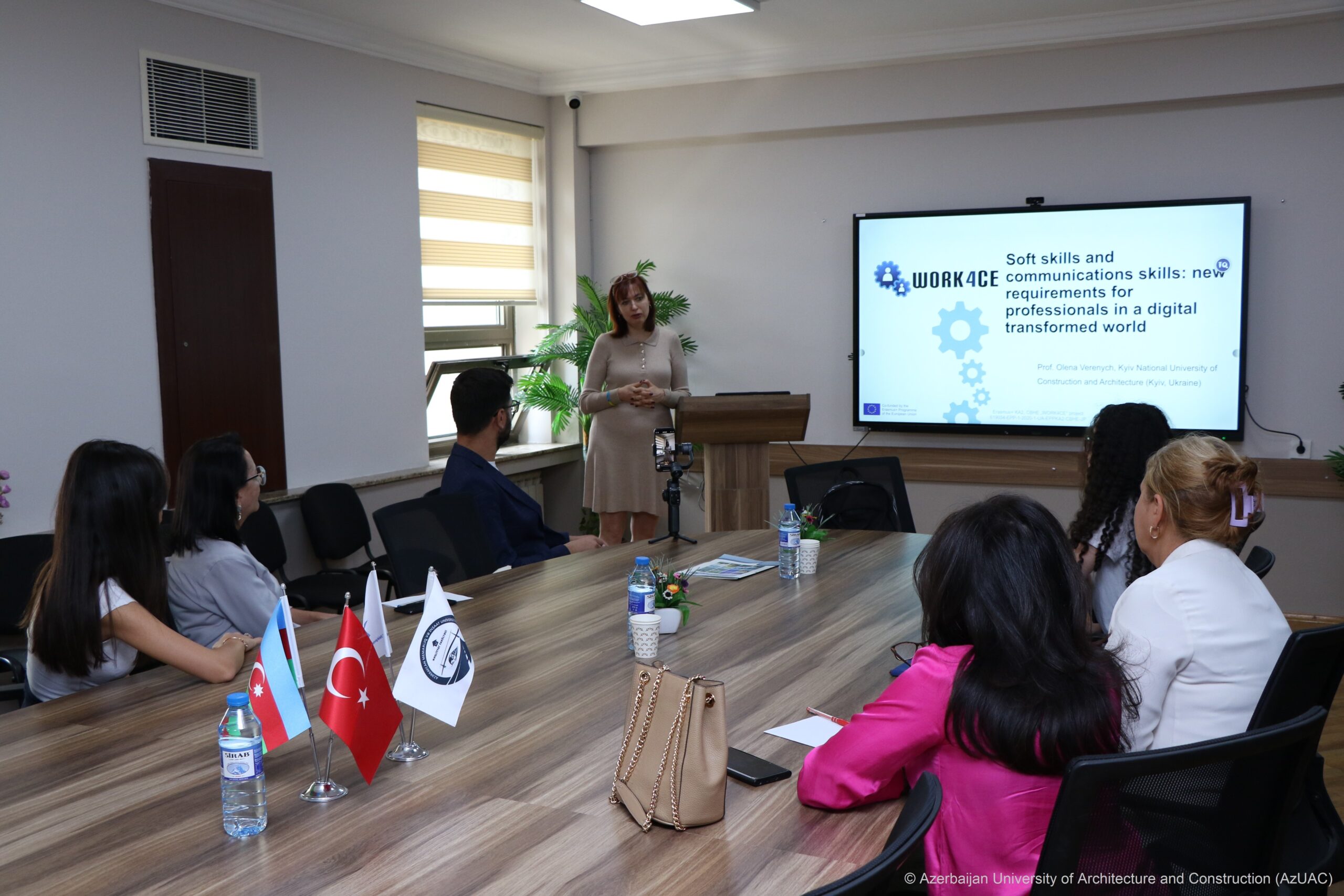
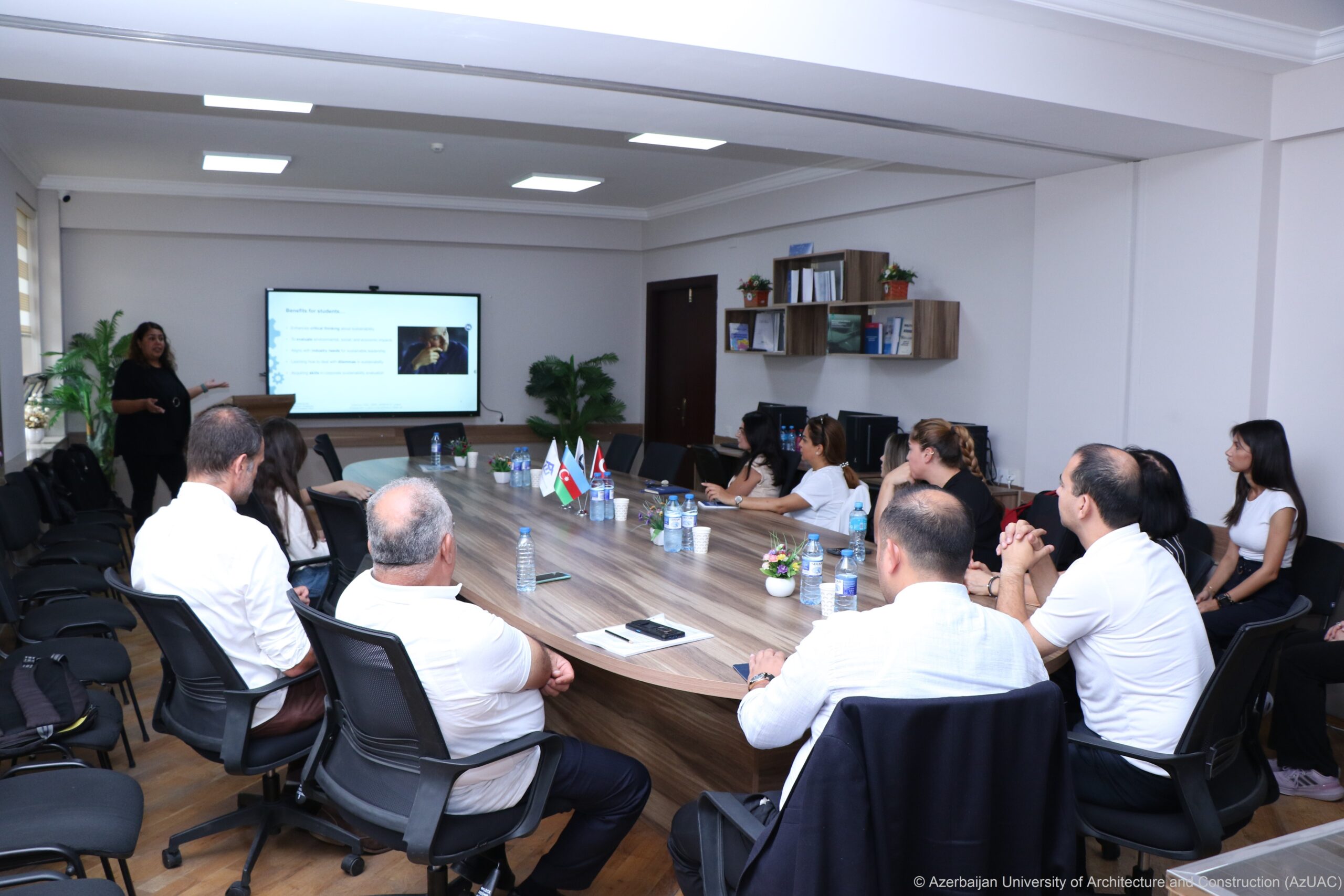
The first day featured parallel lectures designed to equip teachers and students with key insights into theproject’s core material. Teachers participated in sessions on enhancing their skills for the digital age. Dr. Ing. Carolina Cruz from University of the Basque Country (EHU/UPV) introduced the Sustainability Canvas Model for sustainable project management, while Dr. Ing. Pello Jimbert (EHU/UPV) presented the European Foundation for Quality Management (EFQM) model to improve organizational performance. Prof. Olena Verenych from Kyiv National University of Construction and Architecture (KNUCA) emphasized the growing importance of soft skills and communication in today’s digital transformed world.
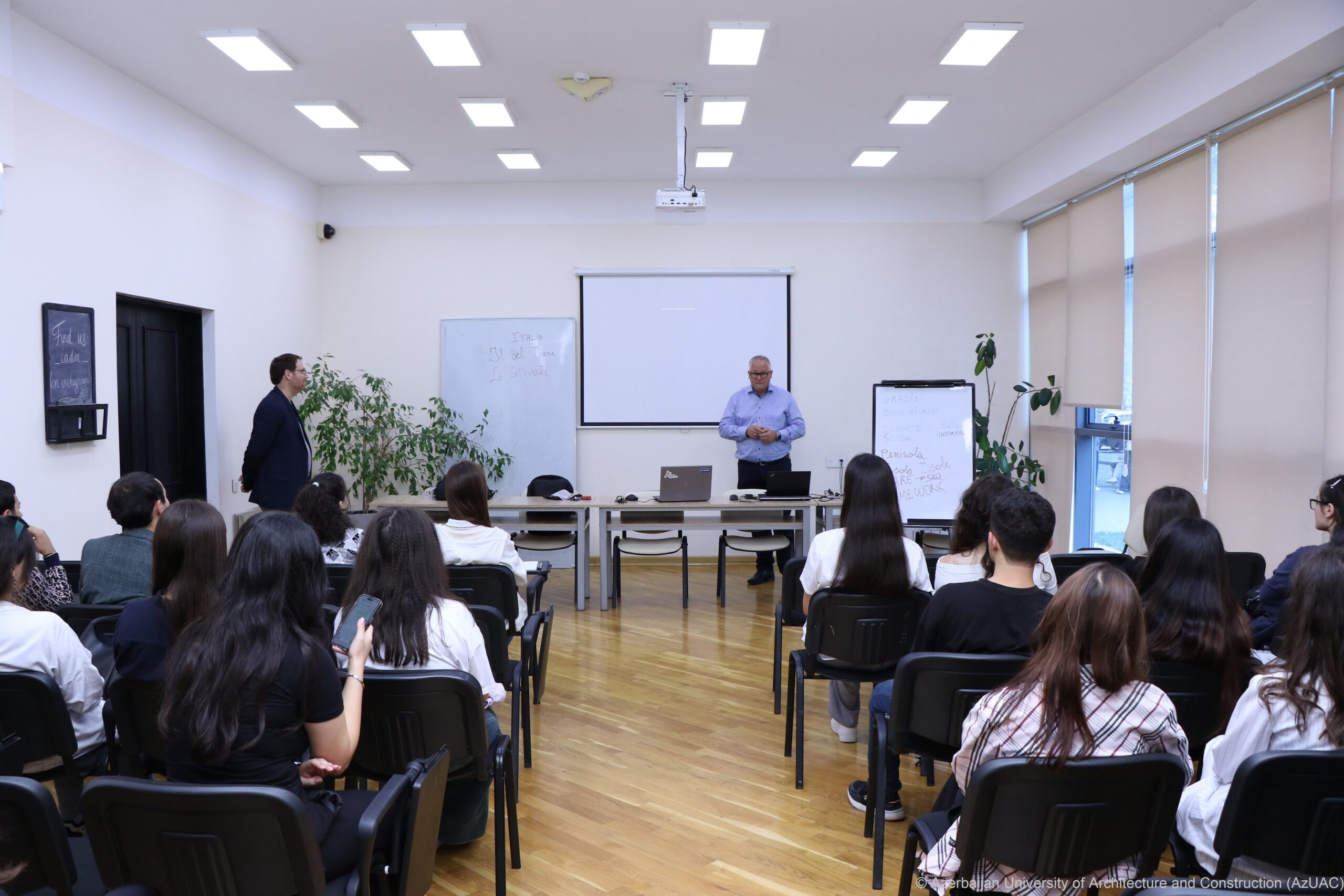
At the same time, students participated in lessons designed to equip them for the rapidly evolving professional landscape. Dr. Dennie Jansen led a session on the digital transformation needs in civil construction, offering students a clear understanding of the industry’s future demands. Meanwhile, Dr. Thorsten Ruben (Dortmund University of Applied Sciences and Arts – Fachhochschule Dortmund (FH Dortmund)) introduced FH Dortmund and the EuroPIM program, showcasing it as one of the leading international English Master’s programs. Both lessons provided students with valuable insights and practical strategies, empowering them to navigate and succeed in an increasingly digital work environment.
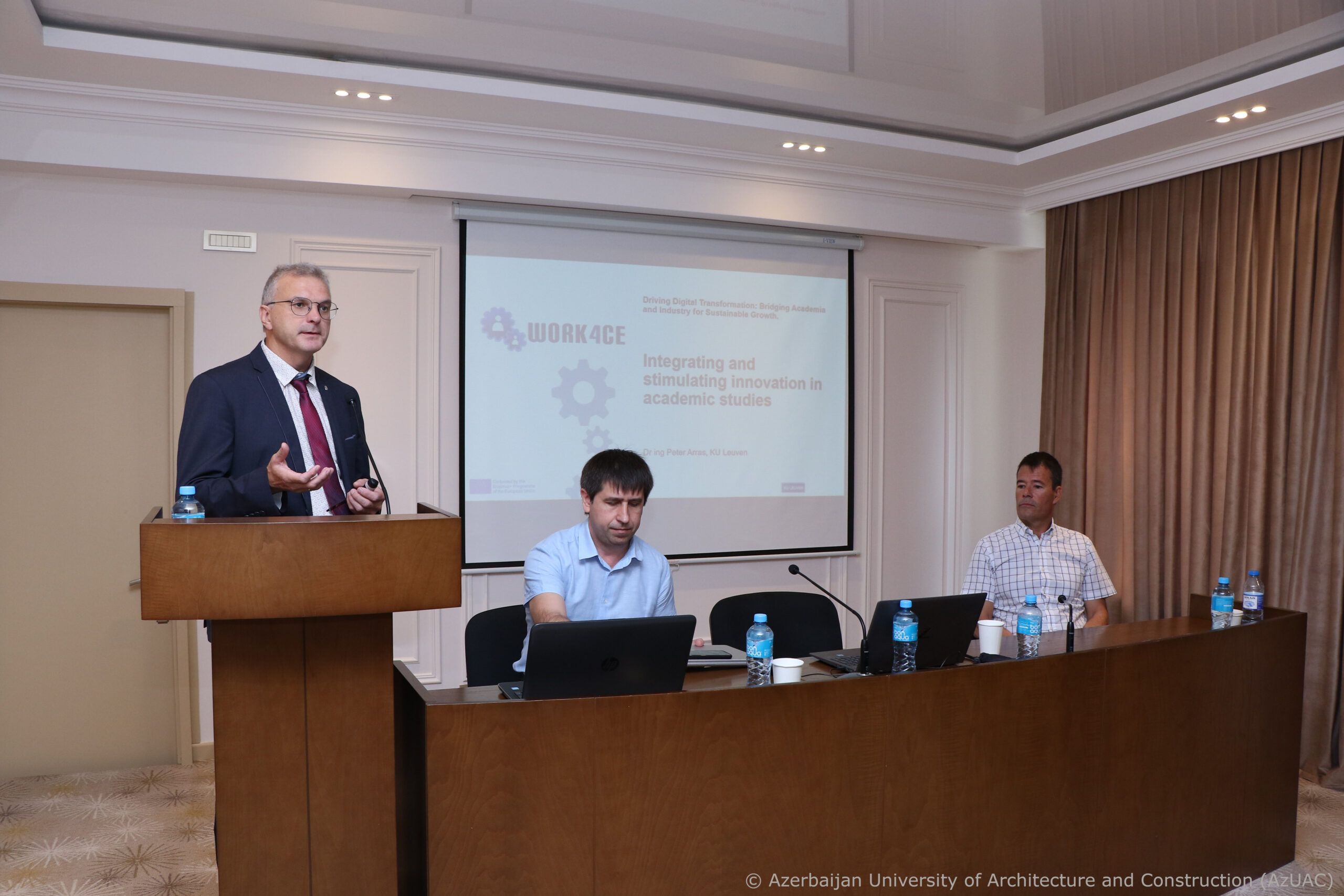
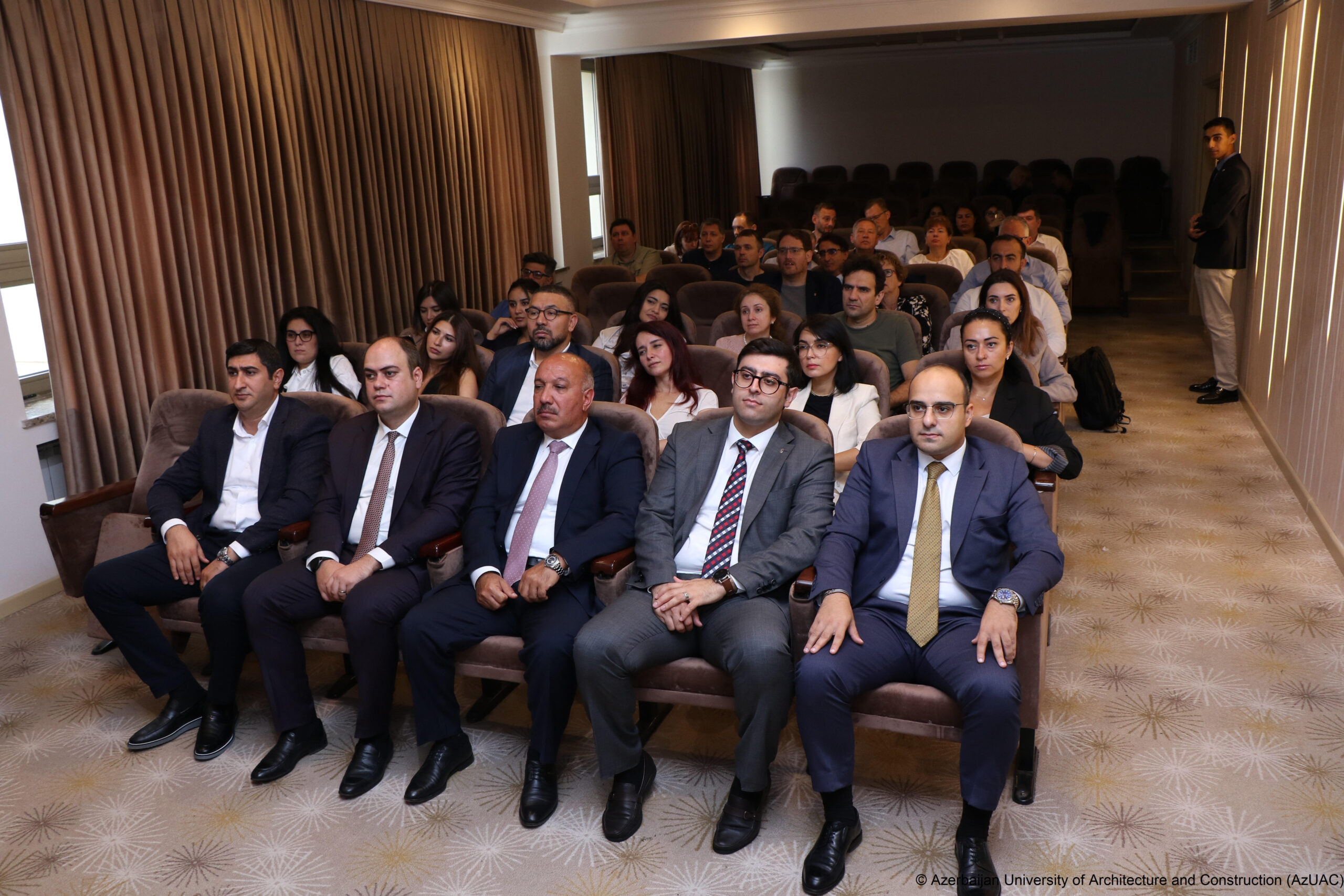
Later that day, the focus shifted to collaboration between universities and businesses with the session titled “Driving Digital Transformation: Bridging Academia and Industry for Sustainable Growth.” This discussion brought together key speakers from academia and industry to explore how innovation can be seamlessly integrated into academic programs. Dr. Ing. Peter Arras (KU Leuven) emphasized the importance of incorporating innovation into academic studies, while Dr. Ing. Rikardo Minguez (EHU/UPV) underscored the benefits of collaboration between students, universities, and companies to foster continuous learning. Prof. Andriy Karpenko (NUZP) further illustrated how the Cluster Movement in Ukraine connects academia and industry, offering a model for collaboration that could be applied in other regions.
In the afternoon, project partners gathered for the Final Erasmus+ WORK4CE Staff Meeting to review progress and address any challenges. Each institution presented updates on their work, sharing key achievements and highlighting areas for improvement. This open discussion created an opportunity to identify solutions to ongoing challenges and ensure that the project remains on track as it moves toward completion.
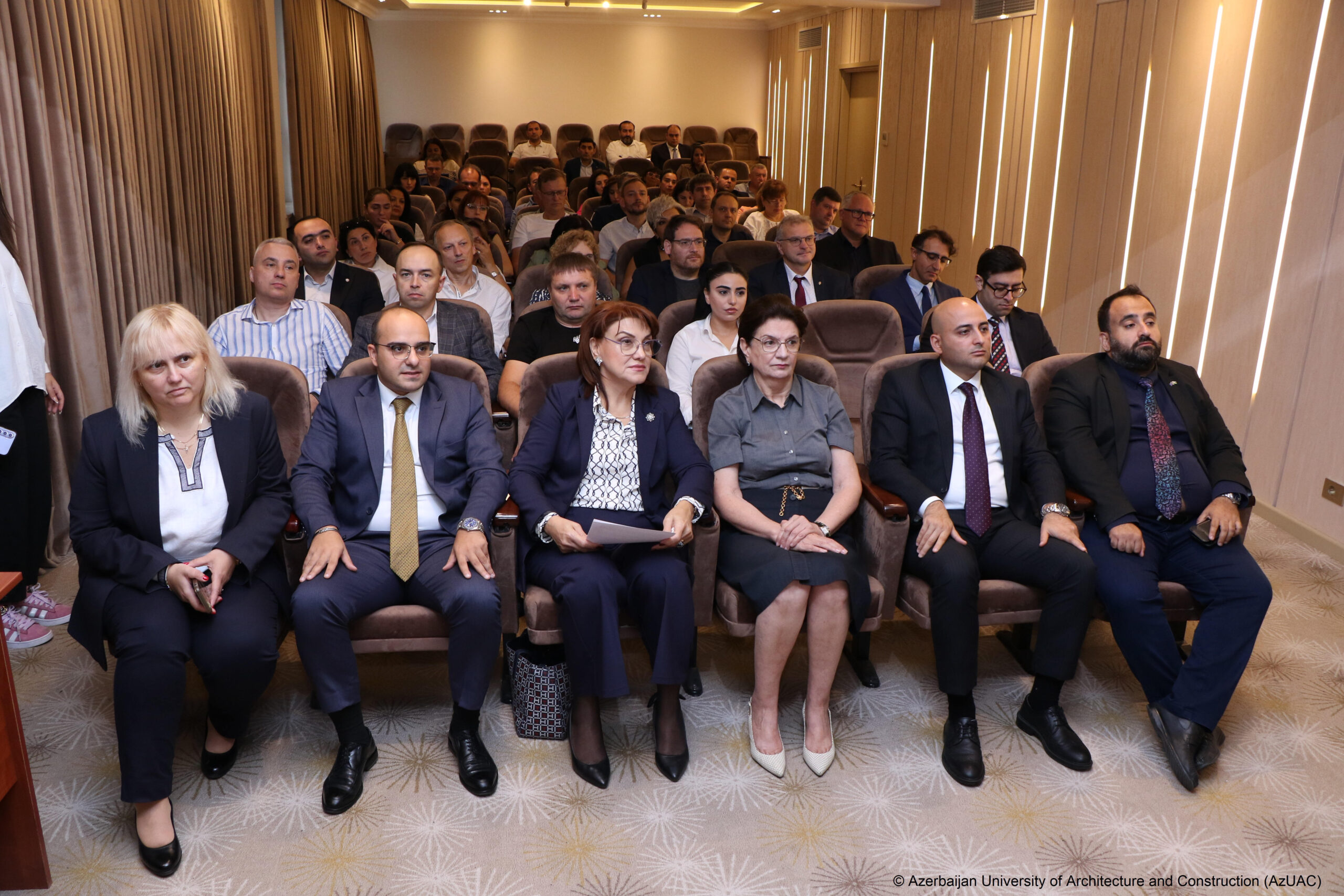
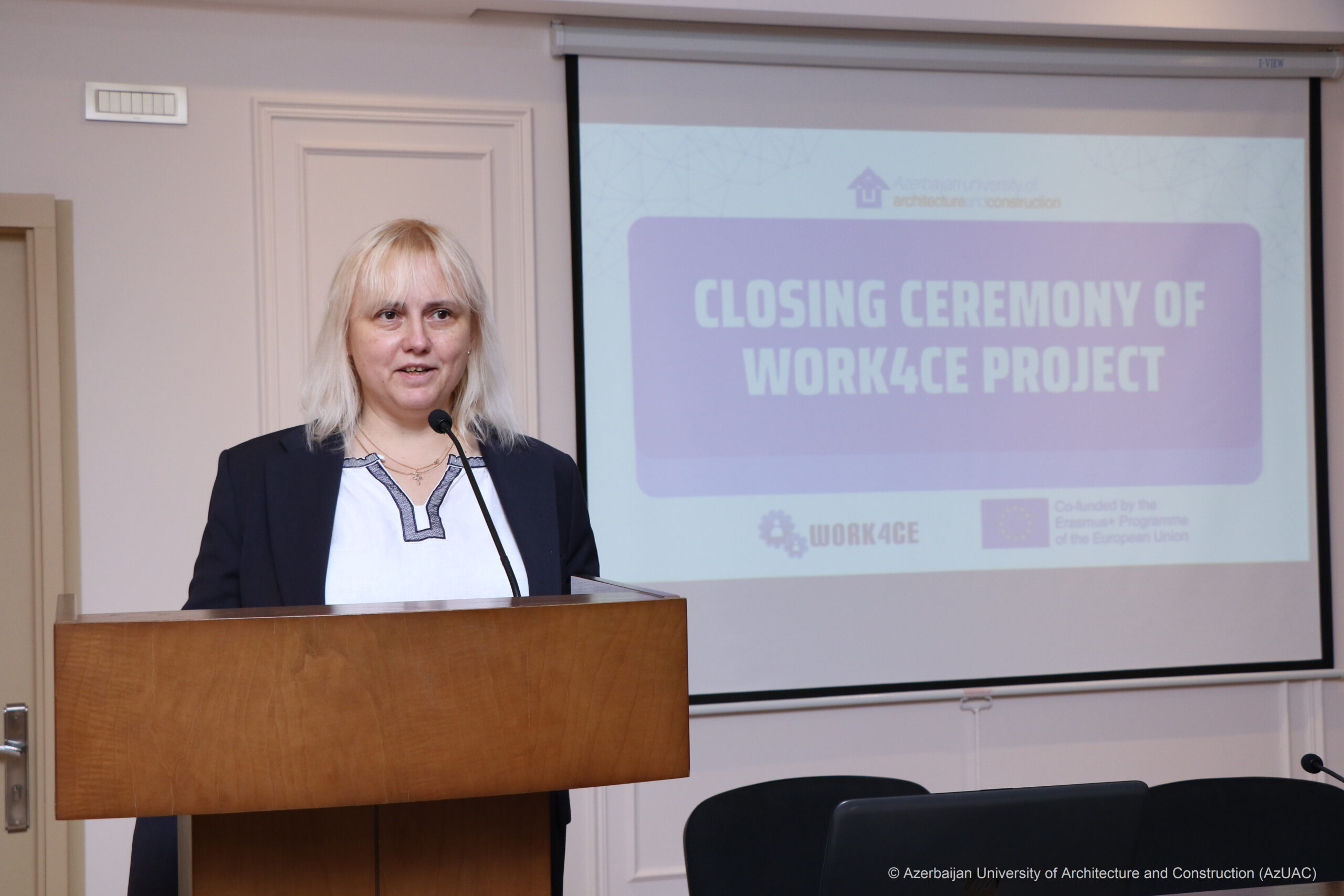
The second day, starting on the morning of the 20th, began with the Closing Ceremony at AzUAC, which featured welcome speeches from Mrs. Gulchohra Mammadova, Rector of AzUAC; Mr. Gulu Novruzov, Rector of ASCCA; Mr. Mujdat Hasanov, Head of the International Cooperation Department of the State Agency for Science and Higher Education; Mr. Parviz Bagirov, Director of the National Erasmus+ Office in Azerbaijan; Mr. Ruslan Kulikovskiy, Vice Rector, NUZP; Mr. Denys Chernyshev, First Vice-Rector, KNUCA; and Mrs. Galina Tabunshchyk, the WORK4CE Project Coordinator. Speakers reflected on the project’s journey, highlighting its successes and the lasting impact of the WORK4CE initiative on higher education and industry collaboration.
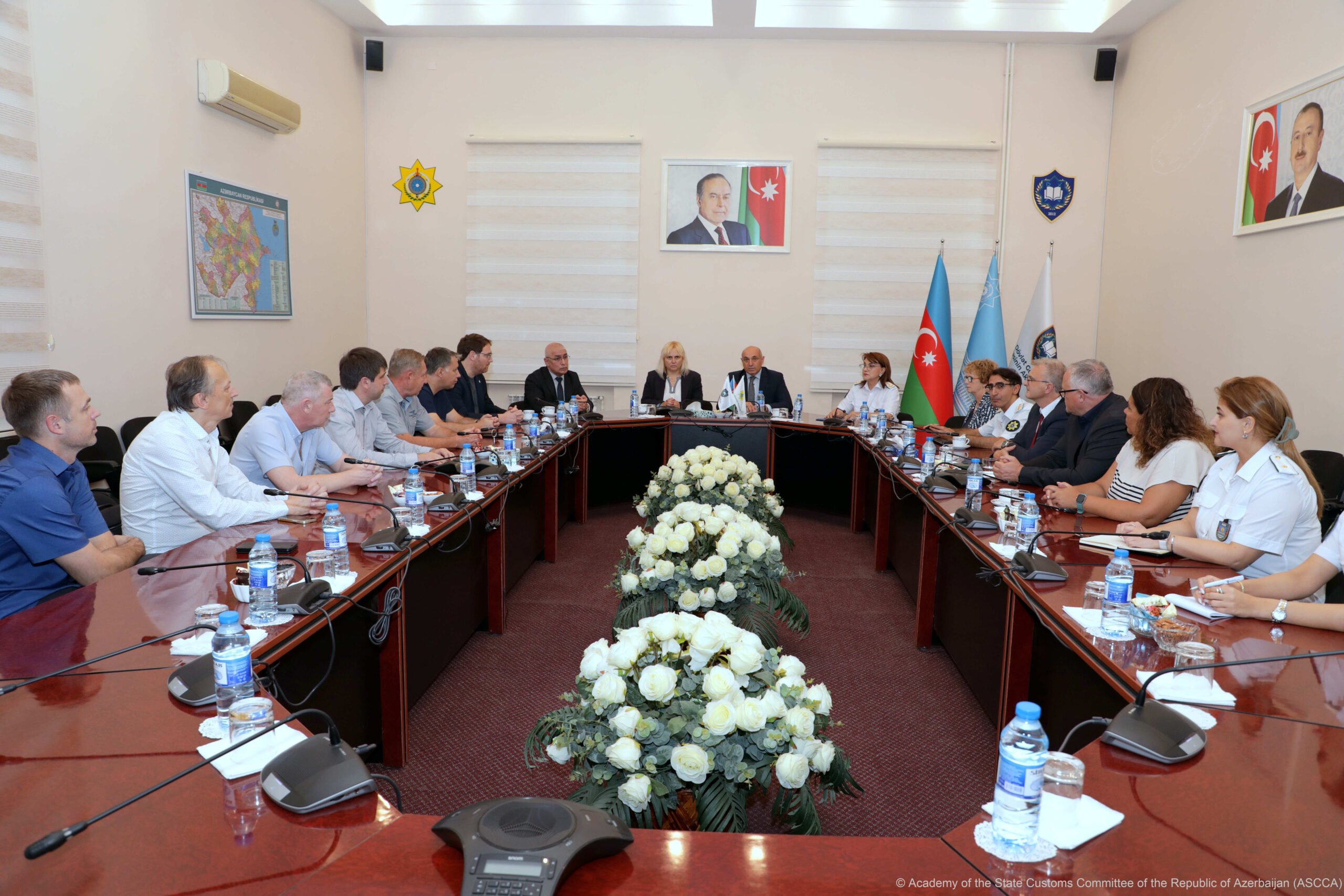
The afternoon featured the final project closure meeting at the Academy of the State Customs Committee of Azerbaijan (ASCCA), where participants evaluated the project’s outcomes and discussed potential future initiatives. Discussions focused on sustaining WORK4CE’s achievements, building on strategies for promoting health and safety in higher education and continuing the partnerships.
Although the Erasmus+ WORK4CE project will conclude, its legacy will continue through initiatives like the Work4Ce Lab and ongoing partnerships between universities and industries. These collaborations will equip students with the skills needed to create healthy, safe, and productive work environments in the 21st century. By maintaining the project’s progress, these institutions will shape the future of higher education and workplace safety.
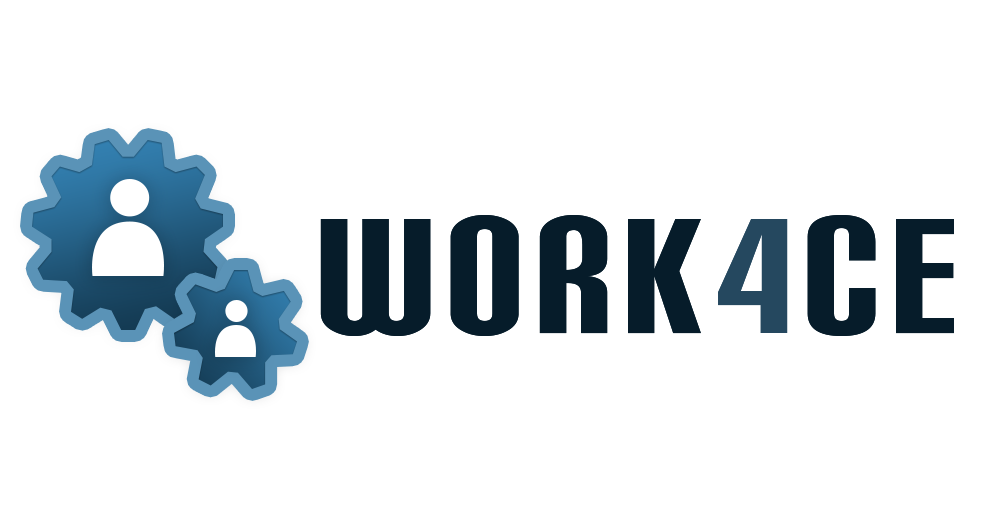
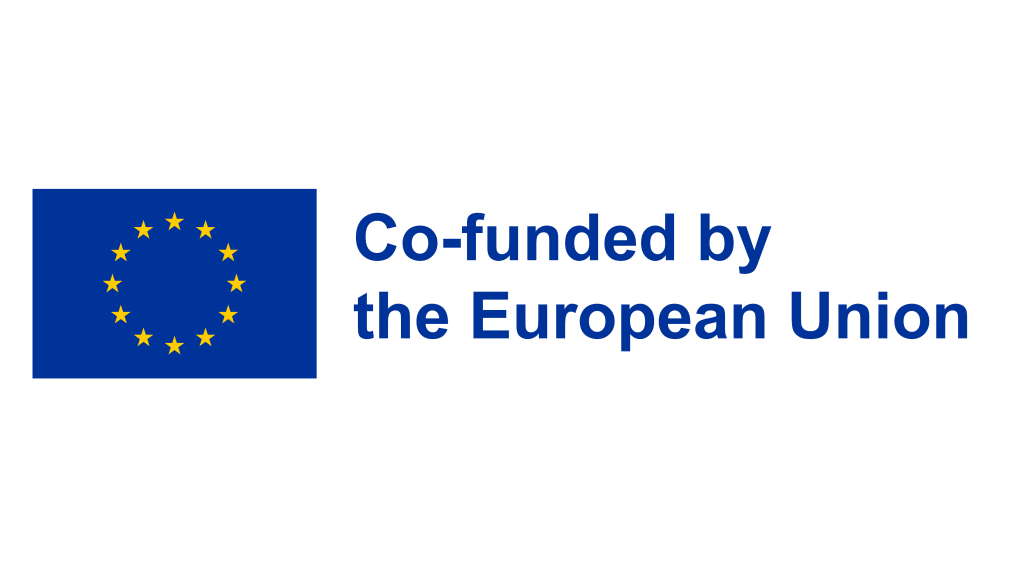
Project type: Erasmus+ KA2: Capacity Building in Higher Education
Project name: Cross-domain competences for healthy and safe work in the 21st century
Project Reference: 619034-EPP-1-2020-1-UA-EPPKA2-CBHE-JP
